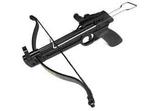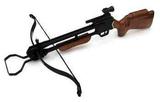Daily Mail 6 October 2008

British forces are now being killed in Afghanistan at a faster rate than during the invasion of Iraq.
This year has been the bloodiest year so far in Afghanistan for the Nato and US missions there since the Taleban was removed from government in 2001, with senior defence officials in the UK admitting the Taleban are proving "more resilient" than expected.
Parts of Afghanistan are on a "spiral downwards", according to the incoming US Commander of Centcom, General David Petraeus, in charge of a wide area including all US operations in Iraq and Afghanistan.
An analysis of the official casualty figures released in August by the Medical Research Council (MRC) in Britain, shows that in Afghanistan from 31 March to 17 August, UK soldiers were being killed at a rate of eight per 1,000 personnel years. This followed a sharp increase in roadside bomb attacks by insurgents.
During the first six weeks of the invasion of Iraq, the death toll was six per 1,000 personnel years.
The MRC's statistics also showed that from 31 March to 17 August 2008, in Afghanistan there were 24 UK deaths out of a force of 8,000, but during the same 20-week period in Iraq there were no deaths of UK soldiers out of a deployment of 4,000.
The coalition death rate in Iraq stood at 7.5 per 1,000 personnel years during the worst of the fighting. It is now down to under three per 1,000 personnel years in Iraq since the successful US surge.
Senior military figures in both Britain and the US confirm that insurgents in Afghanistan are adopting methods used by the insurgency in Iraq, and that while the situation in Iraq is now 'heading in the right direction', the campaign in Afghanistan is badly in need of concerted efforts to unify the chain of command and bring a new coherence to the international mission.
Britain has 7,800 troops, stationed mainly in Helmand Province, while the US has some 33,000 troops in Afghanistan in total, with 13,000 of those serving as part of the Nato-led coalition.
However, defence sources have made clear that there will be no new British troop reinforcements for Afghanistan beyond the extra 230 service personnel due to be deployed by the end of this year.
In contrast to Britain, the US is reinforcing its troop numbers in Afghanistan as it prepares to withdraw thousands of troops from Iraq.
US General David McKiernan, who has oversight of the US-led mission Operation Enduring Freedom, told reporters in Washington this week: "The idea that it might get worse before it gets better is certainly a possibility."
Although he also insisted he was certain the insurgents "would not win".
The US defence secretary, Robert Gates, has also asked Nato members to contribute more cash towards doubling the size of the Afghan National Army to 134,000 troops in four years' time and reinforcing the Afghan Police, with the building up of both forces key to any eventual exit strategy for the West.
There is an acknowledgement today that Afghanistan's size, geography, demographics and history present a more complex challenge than was perhaps realised in the heady, early days of 2001.
Multinational forces are trying to come to grips with an insurgency in an under-developed, socially-conservative country traumatised by 30 years of war and civil conflict, in a nation in which 70% of people live in isolated, rural regions.
Mastiffs and Jackals
However, while many in the West are gloomy about the lack of progress being made in Afghanistan, the picture in Iraq is looking increasingly optimistic, even though commanders warn that the gains made remain fragile and reversible.
It is expected that the 4,000 British forces still stationed in Basra will begin to draw down in earnest some time next year. No British servicemen or women have been killed in Iraq since this March, although their main base at Basra air station is still the target of some rocket attacks by militants.
In Afghanistan, it is roadside bombs which pose the biggest threat.
They now account for almost 60% of coalition deaths, highlighting the vulnerability of vehicles such as the "Snatch" Land Rover still being used by British forces. Over the past five years, more than 30 British soldiers have been killed in the lightly-armoured vehicles in southern Afghanistan.
However, British troops are to be supplied with 600 new armoured vehicles.
The Ministry of Defence and Treasury agreed a £500m deal which should see a variety of vehicles, including the more heavily-armoured Mastiffs and Jackals, delivered to Afghanistan by next spring.
In further efforts to reduce the exposure of forces to roadside bombs, the UK and France have also pushed for members of Nato who have not deployed combat troops to Afghanistan to contribute £30m to supply extra military helicopters and trained crews for the mission - although it is not yet clear when the first will be ready to be sent.
UK Lockdown point of view
This war is not being fought to improve the lives of the Afgan people it is being fought so the Zionists can get to fully construct their oil pipeline and so they can also regain control of the Afgan Opium fields and fund expansion of their world empire, British & American troops should be here at home fighting to free us from the Zionist parasites that have subverted our governments, our troops should be here defending our freedoms and stopping any more of our basic rights being taken away, they should be fighting to defend this nation from its real enemies the Jewish crime network and all the agents who operate on their behalf.






















No comments:
Post a Comment